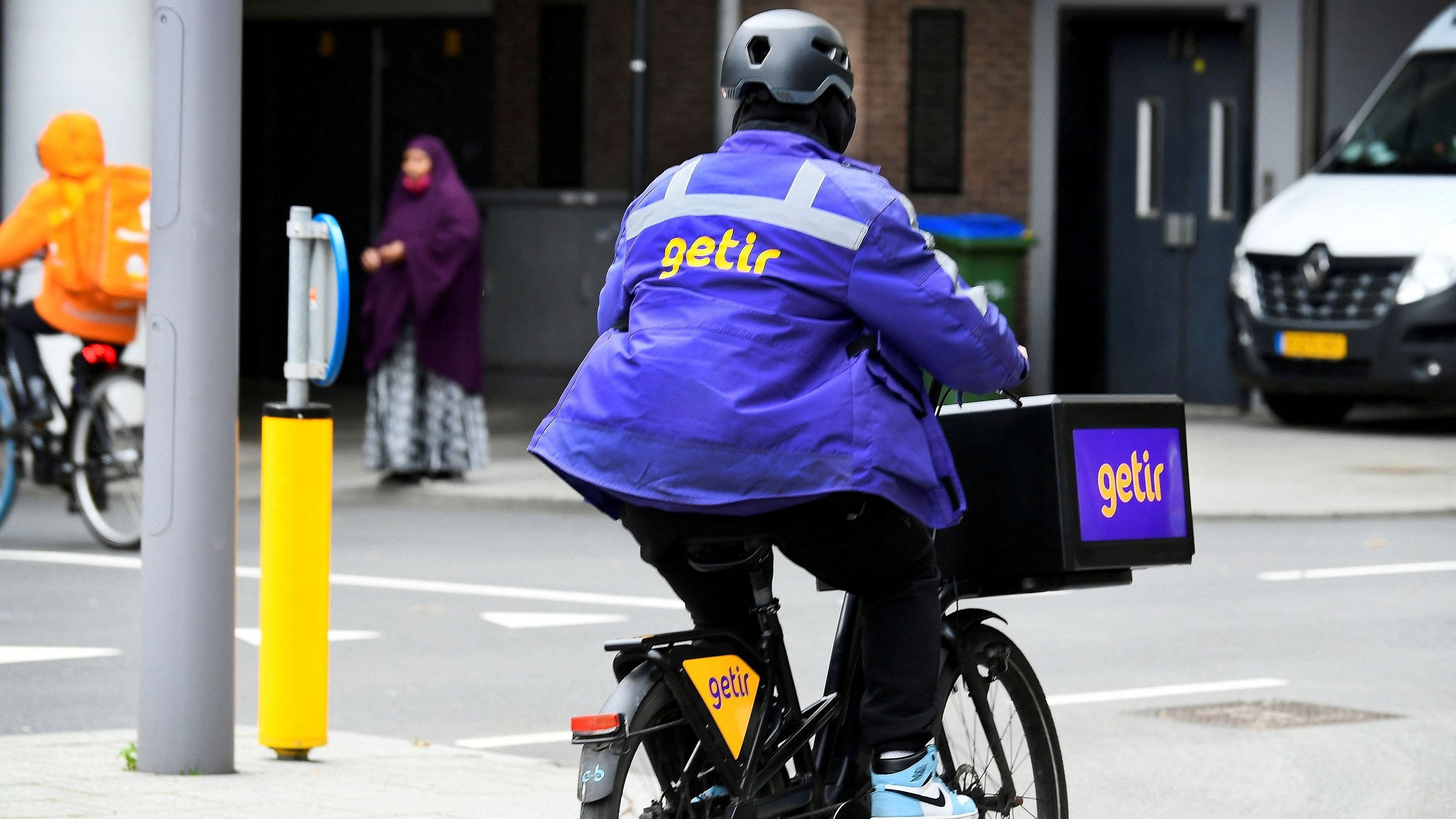
A courier of the fast grocery deliverer Getir rides a bike in Amsterdam.
Credit: Reuters Photo
By Pui Gwen Yeung
From San Francisco to Istanbul, founders of online-delivery companies that exploded during the pandemic are watching their fortunes disappear.
The boom minted six known billionaires, four of whom have already lost that status, according to the Bloomberg Billionaires Index. The group, which includes the founders of Turkey’s Getir, Amsterdam’s Just Eat Takeaway.com NV and Silicon Valley’s Instacart and DoorDash Inc., has lost more than $15 billion in total.
Investors piled money into food and grocery delivery companies during the pandemic when consumers were stuck at home. Now that the world has opened up again and demand has softened, once-generous valuations for the cash-guzzling businesses have been slashed as the companies acknowledge the challenges ahead.
“The fact that high annual exceptional growth rates have been an exceptional phenomenon and cannot be maintained at the same level over years should have been clear from common sense alone,” Matthias Schu, a lecturer at the Lucerne School of Business, said in an interview.
Ahead of its initial public offering in September, Instacart listed the pandemic among its risk factors. In July, Just Eat Takeaway’s Jitse Groen said the business is still sensitive to Covid trends as a predictor of demand, with orders ticking up one quarter “due to the resurgence in Covid cases.” In August, DoorDash’s Tony Xu said there’s “a lot of problems there to solve” in the post-pandemic e-commerce environment.
Getir’s Nazim Salur, who built a $5 billion fortune during the pandemic, is the latest to lose billionaire status, according to analysis by Bloomberg and based on a Financial Times story that said Getir’s latest funding round slashes the company’s valuation by almost 80 per cent.
Even as pandemic shutdowns eased in recent years and demand slowed, Getir looked to expand. After reporting a $529 million loss in 2021, the company — which appeals to customers with a 10-minute delivery time — spent $1.2 billion in 2022 to buy German competitor Gorillas Technologies.
Getir also expanded to the US and western Europe, only to retreat earlier this year from several countries in Europe. Salur said in a July staff meeting that the Turkish market is its only profitable unit. In August, the company said it would cut more than 10 per cent of its global workforce, roughly 2,500 employees.
A spokesperson from Getir declined to comment.
Stock Drops
Instacart, which was valued by venture capitalists at as much as $39 billion in March 2021, began trading publicly on Sept. 19 at roughly a quarter of that valuation. The shares rose 12 per cent in the first day of trading, giving co-founder Apoorva Mehta a $1.1 billion stake — down from a $3.5 billion fortune at its highest point.
Meanwhile, DoorDash’s Andy Fang lost his billionaire title while the other co-founders, Xu and Stanley Tang, are barely hanging on to that status. Shares in the food-delivery company have tumbled more than 60 per cent since peaking in November 2021.
Another founder, Just Eat Takeaway’s Groen, was worth almost $2 billion in October 2020, but 85 per cent of his fortune has vaporised as the company’s share price has plummeted.
Representatives for DoorDash and Just Eat Takeaway declined to comment on the calculation, while Instacart didn’t respond to requests for comment.
The same trend is playing out in emerging markets including India and China, despite looser regulations and cheaper operating costs. Indian startup Swiggy’s valuation was halved in May, while local competitor Dunzo is struggling to pay its staff and raise fresh funds. In China, US-listed operator Missfresh Ltd.’s market capitalization dropped below Nasdaq’s $5 million minimum requirement in July and he company is grappling to keep from being delisted.